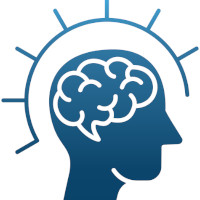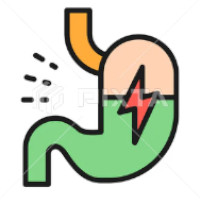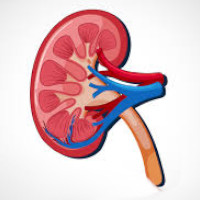Hi everyone! I’m Dr. Valeria, a pediatrician and specialist in hematology-oncology, passionate about improving children’s health and well-being. With years of experience in treating young patients, I’ve come across countless concerns that parents and caregivers face every day.
❓ Why is my child always tired?
❓ How can I help my kid build a strong immune system?
❓ Is my child’s growth and development on track?
❓ Should I be worried about frequent headaches, bruises, or fatigue?
These are just a few of the many questions I hear regularly. That’s why I’m hosting a session where we’ll discuss the most common (and often overlooked) health challenges kids face, along with practical solutions backed by science. Whether you’re a parent, caregiver, or just interested in child health, this is a space to learn, share, and get expert guidance.
Please ask any query by following below steps:
1. Register / Login
2. Subscribe the the Community Pressing button below OR Go to My Communities on the top -> Manage Community -> Paediatrics
3. Press “Post Feedback” button to write your query.


 Addiction
Addiction Dental and Oral
Dental and Oral Depression
Depression Disability
Disability ENT
ENT Eye Problem
Eye Problem Fever
Fever General Health
General Health Heart Issues
Heart Issues Liver Problems
Liver Problems Lungs Problems
Lungs Problems Mental / Psychological
Mental / Psychological Neuro Health
Neuro Health Nutrition & Diet
Nutrition & Diet Orthopaedics / Bone
Orthopaedics / Bone Rare Diease / Genetic Condition
Rare Diease / Genetic Condition Sleep Issues
Sleep Issues Stomach Problems
Stomach Problems Stones
Stones Thyroid Disorders
Thyroid Disorders Tumor / Cancer
Tumor / Cancer Urological Health
Urological Health Woman Health
Woman Health



Dear Mam, can you pls share what are some early signs of developmental delays in children, and when should parents seek professional advice?
Early identification of developmental delays in children is crucial for timely intervention. Here are some key early signs across different areas of development:
1. Motor Skills
• By 3–6 months: Poor head control, stiffness, or floppiness
• By 9 months: Not sitting without support, difficulty reaching for objects
• By 12 months: Not crawling, standing, or pulling up
• By 18 months: Not walking independently
2. Speech & Language
• By 6 months: Lack of babbling or cooing
• By 12 months: No words or gestures like waving or pointing
• By 18 months: Fewer than 10 words, not responding to their name
• By 24 months: Not using two-word phrases or very limited vocabulary
3. Social & Emotional Skills
• By 6 months: Limited eye contact, no smiles
• By 12 months: Lack of interest in people, no response to name
• By 18 months: No pretend play, little interest in others
• By 24 months: Avoids social interactions, doesn’t copy actions or words
4. Cognitive & Problem-Solving Skills
• By 12 months: Doesn’t explore objects, doesn’t follow simple instructions
• By 18 months: Difficulty understanding simple words or commands
• By 24 months: Doesn’t engage in simple problem-solving (e.g., using a toy in a new way)
When to Seek Professional Advice
Parents should consult a pediatrician or developmental specialist if:
• Milestones are significantly delayed compared to peers
• Regression occurs (losing skills previously acquired)
• Child seems indifferent to surroundings or lacks interest in interaction
• Persistent difficulties with movement, communication, or behavior
Early intervention can make a significant difference. If in doubt, it’s always best to consult a professional sooner rather than later. Let me know if you need more details!
Hello Mam, my younger daughter, aged 10, she would keep playing whole day, but at night she complains sensation in the legs and demands oil massage while sleeping, otherwise she complins her legs are kind of vibrating, not in control. What do you think it could be? Is it normal?
What you’re describing sounds like it could be benign, especially if your daughter is very active during the day. However, a few possibilities come to mind:
1. Growing Pains
• Very common in children aged 3–12.
• Usually occur in the evening or at night, often affecting both legs.
• Children often describe aching, throbbing, or vibrating sensations.
• Massage, warmth, and stretching often relieve the discomfort.
• It typically doesn’t affect walking or daily activities.
2. Overuse or Muscle Fatigue
• If she’s running or jumping a lot, her muscles may be tired or sore at night.
• This can cause strange sensations, sometimes described as “buzzing” or “shaky” legs.
What You Can Try at Home:
• Warm baths before bed.
• Gentle stretching exercises in the evening.
• Continue with gentle massage, if she finds it comforting.
• Ensure she stays hydrated and has a balanced diet with enough iron, magnesium, and calcium.
When to See a Doctor:
• If the sensations worsen, start affecting her sleep or daily life, or involve weakness, swelling, or pain.
• If you notice any involuntary movements, changes in walking, or if the symptoms only affect one leg.
Thanks Mam. This is really insightful. With the explanation, it seems like an benign issue, as during day its all fine, and she is fully active. Anyways, I’ll take care of balanced diet with enough iron, magnesium, and calcium, foo her.
You’re very welcome! It’s great to hear that she’s active during the day — that’s a really reassuring sign. And yes, focusing on a balanced diet with enough iron, magnesium, and calcium is a smart move. These nutrients support everything from energy levels to muscle and nerve function, and they can really help if there are any minor deficiencies contributing to what you’re observing.
If you ever notice any new symptoms or if things change, don’t hesitate to check in with a doctor just to stay on the safe side. You’re clearly being very thoughtful and attentive — she’s lucky to have you looking out for her!
Why do you care so much?
Hello Mam
My 5 yr old often complains about pain in both ears which causes irritation, especially while sleeping
Few times the ear pain is accompanied by fever
Can you please suggest me what would be the best option for me to follow?
Possible Causes of Ear Pain with Fever in Children:
1. Middle Ear Infection (Otitis Media)
• Very common in children under 7.
• Often follows a cold or upper respiratory infection.
• Can cause sharp or throbbing pain, fever, irritability, and trouble sleeping.
• May affect both ears.
2. Earwax Blockage or Outer Ear Infection (Otitis Externa)
• Less commonly causes fever, but can still cause pain and discomfort, especially when lying down or touching the ear.
3. Referred Pain
• Sometimes throat infections or enlarged tonsils/adenoids can cause pain felt in the ears.
• This can happen without any ear problem directly.
What You Can Do Now:
• Keep track of when the pain occurs (day vs night, after colds, etc.).
• Check for other symptoms: nasal congestion, sore throat, cough, fluid/discharge from the ear.
• You can use paracetamol or ibuprofen (in age-appropriate doses) to relieve pain and fever — but only as a temporary measure.
You Should See a Pediatrician If:
• The pain keeps recurring, especially with fever.
• Your child becomes very irritable, drowsy, or refuses to eat.
• There is fluid or pus coming from the ear.
• It affects hearing, balance, or is accompanied by vomiting.
• If pain lasts more than 1–2 days, even without fever.
Hi my wife age is 37. She is 32weeks5days pregnant.. she faces high bp few months ago she took ciplar la 20mg (propranolol) from last 45 days and stopped yesterday bcoz of instant low bp.. is there any risk to baby now and after birth due to ciplar la 20 mg (propranolol)
So much love in such a small bundle — wishing you endless happiness with your sweet new baby.
About Ciplar LA 20 (Propranolol) in Pregnancy:
Propranolol is a beta-blocker often used during pregnancy when needed, especially to manage high blood pressure, tachycardia, or migraine. It’s not the first-choice medication in pregnancy, but many doctors prescribe it when the benefits outweigh the risks.
Is Ciplar LA 20 mg Risky for the Baby?
In general:
• Low-dose propranolol (like 20 mg) is considered relatively safe in late pregnancy under medical supervision.
• The main concerns are usually with higher doses or prolonged use, and even then, most babies do well.
Possible risks when used late in pregnancy (especially after 20 weeks and closer to delivery) can include:
• Low birth weight (due to reduced blood flow to the placenta).
• Bradycardia (slow heart rate) in the baby after birth.
• Low blood sugar in the newborn after delivery.
• Rarely, breathing difficulties immediately after birth.
But these effects are usually transient and manageable with proper monitoring.
The Good News:
• Stopping propranolol just yesterday means the baby’s exposure is limited.
• If your wife’s BP is now low, the medication was likely no longer needed, and stopping it was probably appropriate.
• Babies exposed to propranolol often do well, especially if the pregnancy is closely monitored.
What You Should Do Now:
1. Monitor your wife’s blood pressure regularly, especially now that she’s off the medication.
2. Inform the obstetrician immediately about the medication history and current BP status.
3. During delivery and after birth, neonatologists should be informed so they can monitor the baby for:
• Heart rate
• Blood sugar levels
• Breathing in the first 24–48 hours
Final Thoughts:
• At this point (32 weeks + 5 days), your baby is quite mature and developing well.
• If the propranolol was used as prescribed, at low doses, and has now been stopped appropriately, the risks are low and manageable.
• Close follow-up with your obstetrician and neonatal care team is the best next step.
Thankyouuu soo much ..
Your suggestion is a relieve for me.. i will take care of all the suggestions..
Hi, My daughter doesn’t maintain her hair well. In the morning while getting ready when we comb her hair hard, she complains pain in her eyes. Is this normal?
If your daughter feels pain in her eyes when her hair is being combed tightly or pulled, it can be due to a few possible reasons — some of them benign, but others worth watching:
Possible Causes:
1. Scalp Nerve Sensitivity (Referred Pain)
• The scalp and forehead share nerve pathways with the area around the eyes (especially via the trigeminal nerve).
• So, pulling or tugging on the scalp, especially when combing tightly, can sometimes cause discomfort that feels like it’s in the eyes or around them.
• This is more likely if her hair is tangled and needs hard pulling.
2. Tight Hairstyles
• Styles like ponytails or braids that are done too tight can put strain on the scalp and cause pain not just on the head but sometimes a feeling of pressure or pulling in the face or eyes.
3. Sinus Pressure or Eye Strain
• If she has any underlying sinus issues, allergies, or has been experiencing eye fatigue (e.g., from screen use), even small external pressure like hair combing may feel uncomfortable near the eyes.
4. Scalp Tenderness or Skin Condition
• Conditions like seborrheic dermatitis, eczema, or even mild inflammation can make the scalp tender to touch and lead to discomfort spreading to nearby areas.
What You Can Do:
• Be gentle while combing, use detangling spray if needed.
• Try wide-toothed combs or combing in sections to avoid strong pulling.
• Observe if there are any redness, rashes, dandruff, or sensitivity in the scalp.
• Check if she has any recent eye strain, headaches, or allergies.
When to Consult a Doctor:
• If the pain persists, worsens, or is accompanied by eye redness, vision changes, headaches, or sensitivity to light.
• If she starts avoiding hair combing due to pain, or if it seems to involve neurological sensitivity.
What could be the reason of dark under-eye circles in kids despite sleeping well, eating well?”
Dark under-eye circles in children, even with good sleep and nutrition, can have several causes:
1. Genetics – often inherited and completely harmless.
2. Allergies – nasal congestion can cause veins under the eyes to swell (sometimes called “allergic shiners”).
3. Thin skin – makes the underlying blood vessels more visible.
4. Natural pigmentation – especially in certain skin tones.
5. Mild dehydration – can darken the under-eye area.
Recommendation: If the circles persist, worsen, or come with other symptoms (itchiness, tiredness, or paleness), it’s a good idea to talk to a pediatrician to rule out allergies or other underlying causes.
My son 8 yes old complaining of stomach pain every day even after medication.. any reason beyond it.. tried a lot but not recovering
Thanks for sharing. First, may I ask what medication your child is taking and how often? That helps understand if it’s the right type and dose.
If the pain continues daily despite treatment, consider the following:
1. Track symptoms – When does it hurt? What did they eat? Any emotional triggers?
2. Rule out common causes – constipation, food intolerance, acid reflux, or stress.
3. Promote healthy habits – regular meals, water, bathroom routine, and emotional support.
If the pain lasts over 2 weeks or affects daily life, it’s best to consult a pediatric gastroenterologist for further evaluation.
Hi Mam,
My cousins daughter who is 3 year old, has a Flat feet, do jump and run. Even a small push she falls down. Other wise she is perfectly fine? What we should do ?
That’s completely normal at her age. Many kids walk that way as part of their development.
But if she starts having pain, frequent falls, or discomfort, it’s a good idea to consult a pediatric orthopedist. In some cases, orthopedic insoles (shoe inserts) can help correct the posture and give more stability.
Hello Ma’am,
My son is 8 years old and his height is not as same as other kids in same age group.
He is very good in sports and do swimming, skating and play football etc. I understand, the daily exercise makes strengthen bones and stimulate growth hormones. But, still no improvement in height.
May I know any cure & diet (with required nutrition) to get his height increased?
Thanks,
Parul
Hi Parul,
Not all children grow at the same pace — some take a bit longer and that’s still within normal. It’s important to look at how your son has been growing over time, not just compare him with others his age.
Growth also depends a lot on parents’ height, so genetics play a key role.
He’s active and healthy, which is great! As long as he’s gaining weight well and following his growth curve, there’s usually no need to worry. But if in the next few months we notice no height gain or a slowdown, it would be a good idea to assess further — sometimes with labs or a pediatric endocrinology referral.
A balanced diet, good sleep, and regular check-ups are the best support for his growth.
Thanks Ma’am.